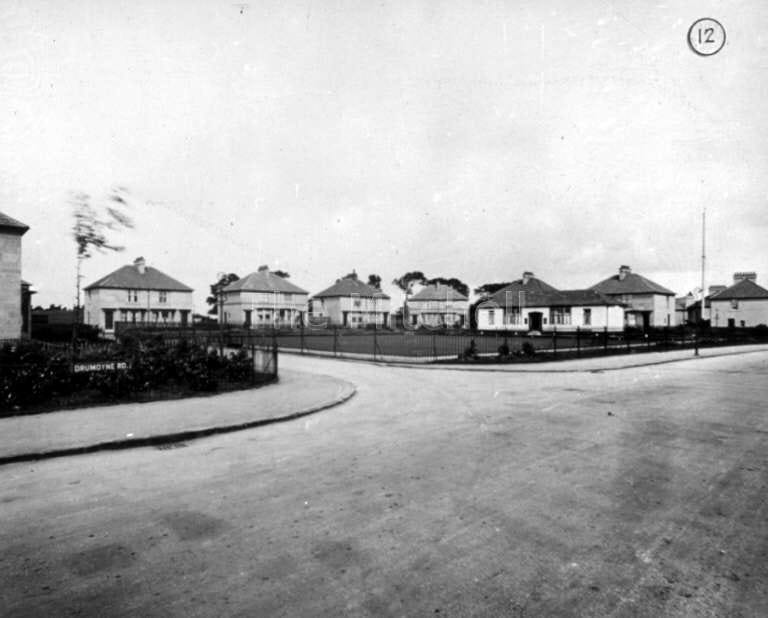Wine Alley Tims and Scheme Hooses
The Rare Aul' Times
"Ye see, it wisnae just a bus fulla Celic fans, it was a community. A real community. Ah mean, ye actually grew up oan that bus."
Above is a quote from a seasoned Tim from the unfairly labelled Wine Alley (Moorpark) area, once of greater Govan, just off Broomloan Road. Now home to a business park, the Winey was a working class scheme designed by urban planners with little to no regard for those cut from the labouring class cloth. It was known as a rehousing scheme according to sociologist and public housing expert, Seán Damer, who writes extensively about working class housing in his excellent book, 'Scheming' (2018). These public housing schemes which began from 1925 came in three varieties: 'Rehousing' schemes, such as the Winey and Blackhill, was for those still trapped in Victorian overcrowded slum areas like the Gorbals. 'Intermediate' schemes, like West Drumoyne (South of Shieldhall Road), were the in-between housing schemes which included some labourers and some skilled workers. 'Ordinary' schemes, like Mosspark, Riddrie and Drumoyne. These were actually extra ordinary and elite level housing which few actual working class folk could afford. So the housing went to councillors, managers and white collar workers generally.
Drumoyne, from the Bowling Club, c1930 (Vrtual Mitchell)
Working class Catholics and Tims a plenty were noticeable by their absence in the early life of the elite housing schemes although this was not because they were excluded by an anti Catholic tenanting policy by the Council. The Tims were routinely excluded from many skilled industries and thus didn't have the wage to afford such housing and rents as historians like Billy Kennefick have previously noted. Consequently, the number of Irish migrants or their Scots born children such as the Glasgow Irish, were found in higher numbers in the poorer of these housing schemes. However, the residents of these ordinary schemes were not too bothered by the absence of Catholics, as Damer's research uncovers when he spoke to an original tenant of the Mosspark scheme,
"Mr. R (original Mosspark resident): The members of the Bowling Club before the war were elderly men, all good businessmen, all good types for the Club...There was only one Catholic in the club until well after the war. That's what spoiled Mosspark"



